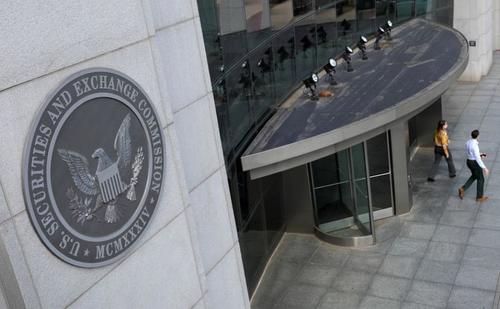SEC’s SPAC Probe Focuses On Conflicts At Goldman, Morgan Stanley And Other Major Underwriters
As their performance slipped leaving legions of retail traders holding the bag (while ‘SPAC King’ Chamath Palihapitiya was rewarded for each deal with a juicy ‘promote’) the SEC launched an investigation into Wall Street’s SPAC dealings, while also imposing new accounting rules requiring all warrants handed out to insiders be explicitly disclosed to the public in the company’s filings.
According to a Reuters scoop published Tuesday, the SEC is ramping up its investigation into whether banks acting as underwriters for these SPAC listings face potential conflicts of interest.
While the SPAC boom has slowed since its peak in late 2020/early 2021 (a record $100 billion was raised for SPACs in Q1 2021), new blank-check companies continue to be issued, while legions of already-listed SPACs scramble to lock in a deal (which allows sponsors to keep their generous fees, since if they can’t find an acquisition target they need to hand all that money back).
The SEC’s search for potential conflicts has brought it to the most obvious place: the fee structure of these SPAC deals. The agency is trying to determine whether certain fee structures incentivize underwriters to work with SPACs even if their deals are “unsuitable” solely so they can reap fat fees on both sides of the deal. Such a structure would tend toward deals of a poorer quality, potentially putting unwitting retail investors “at risk.”
Banks that have received requests for more information from the SEC include Citigroup, Credit Suisse Group, Morgan Stanley and Goldman Sachs – all of which do a considerable amount of SPAC business.
In addition to the banks, the SEC is also looking at the behavior of law firms, SPAC sponsors and others involved in troubled deals. In many cases, the SEC is requesting information from multiple parties regarding certain deals they have apparently deemed suspect.
The SEC is particularly interested in the fees banks have earned when playing several roles on a deal, all three sources said. They declined to say which deals were under scrutiny.
“The big issue for the SEC is to understand if the advisers are conflicted,” said one of the people.
A spokesperson for the SEC did not respond to requests for comment.
Reuters says SPAC sponsors typically pay investment banks a hefty 5.5% fee for underwriting the IPO, part of which is paid up front, with the rest paid when a merger – or “de-SPAC-ing” – is completed. Banks can earn even more fees if they represent the merger target and help the SPAC sponsor raise money from the buy side (in common arrangements known as “PIPE”s – or Private Investment in Public Equity). The SEC is particularly interested on examples where banks are working on both sides of a transaction.
The SEC also wants to know more about how banks perform due diligence on these deals. The pressure is already prompting some banks to “review their processes and increase due diligence”.
Tyler Durden
Wed, 07/14/2021 – 15:51
via ZeroHedge News https://ift.tt/3ehjFZ6 Tyler Durden
